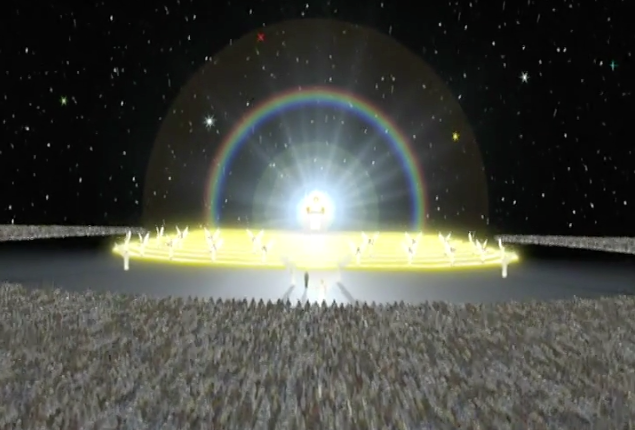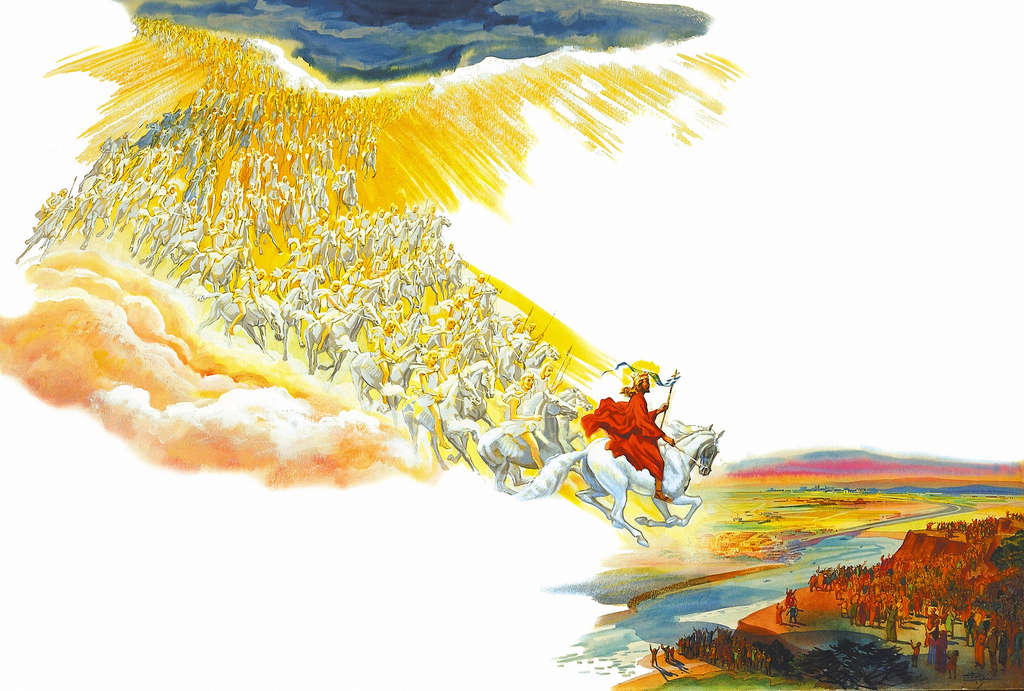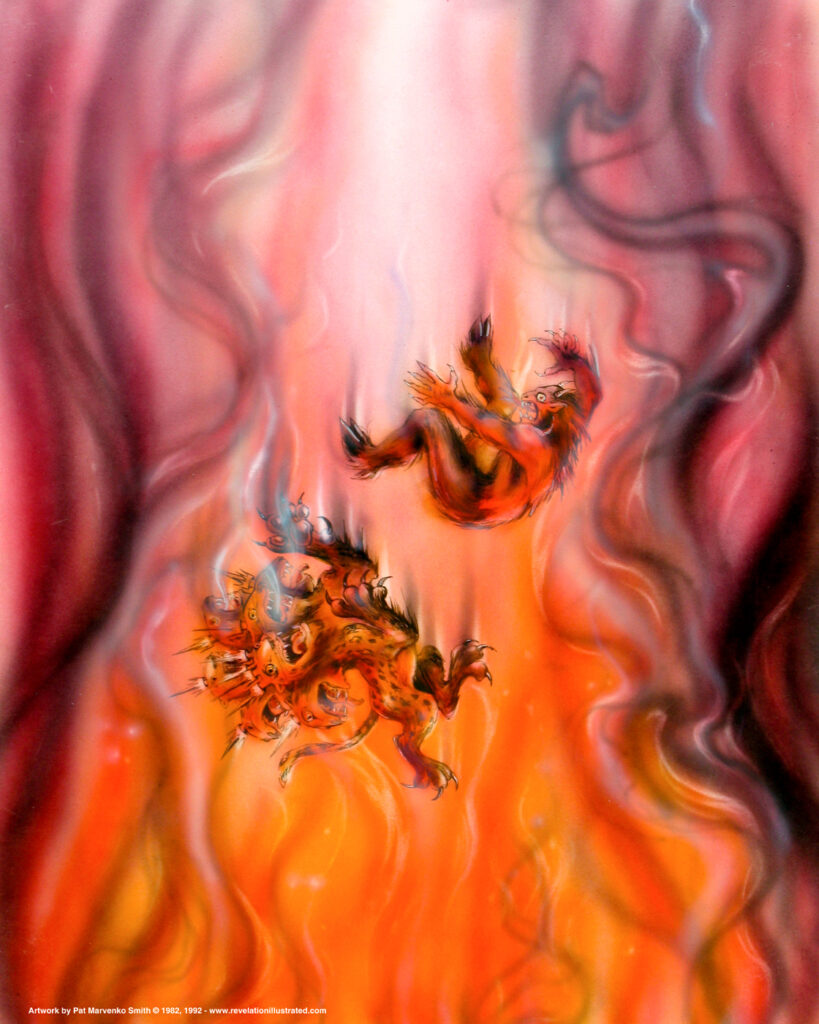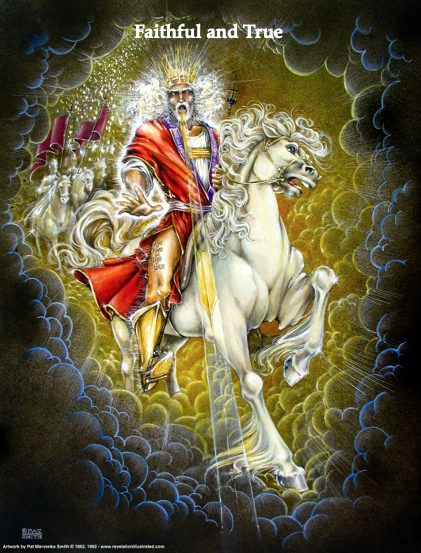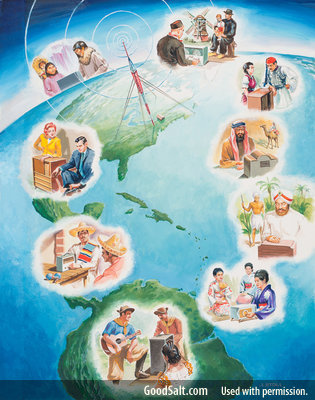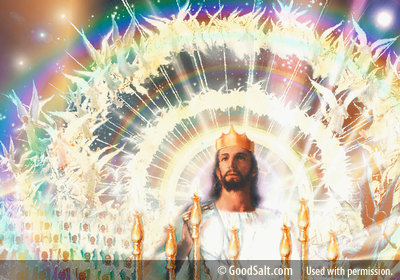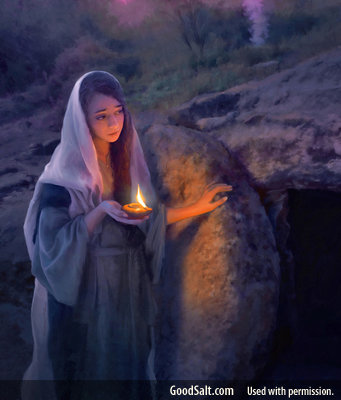“Then I saw a great white throne and Him who sat on it, from whose face the earth and the heaven fled away. And there was found no place for them.” Revelation 20:11
“Abandon every hope, all you who enter here.” 1
“Those are the famous words appearing above the gates of hell in Dante’s ‘Inferno.’ According to Dante, those who pass beneath that sign will have absolutely no hope of ever getting out. Though the details of Dante’s fictional picture of heaven, hell, and purgatory range from the fantastic to the heretical, he was right about this: the final destination of the wicked is a one-way entrance. There is no hope beyond; there will be no escape from the lake of fire.” 2
For over the last two thousand years, the disturbing facts recorded in Revelation 20:11-15 describing the final judgment of all unsaved people has instilled fear, sorrow, disappointment, and even denial in believer and nonbeliever alike. No one wants to hear that eternal punishment for sin awaits those who refuse to believe in God’s only provision for sin – His perfect Son, Jesus Christ. While believers in Jesus will find themselves enjoying the presence of the Lord Jesus Christ forever (Revelation 21:1-22:21), the nonbeliever will find himself or herself forever removed from His presence (Revelation 20:11-15). The facts of eternal punishment are clearly presented without a hint of any hope – “because no hope exists apart from God.” 3 (emphasis added)
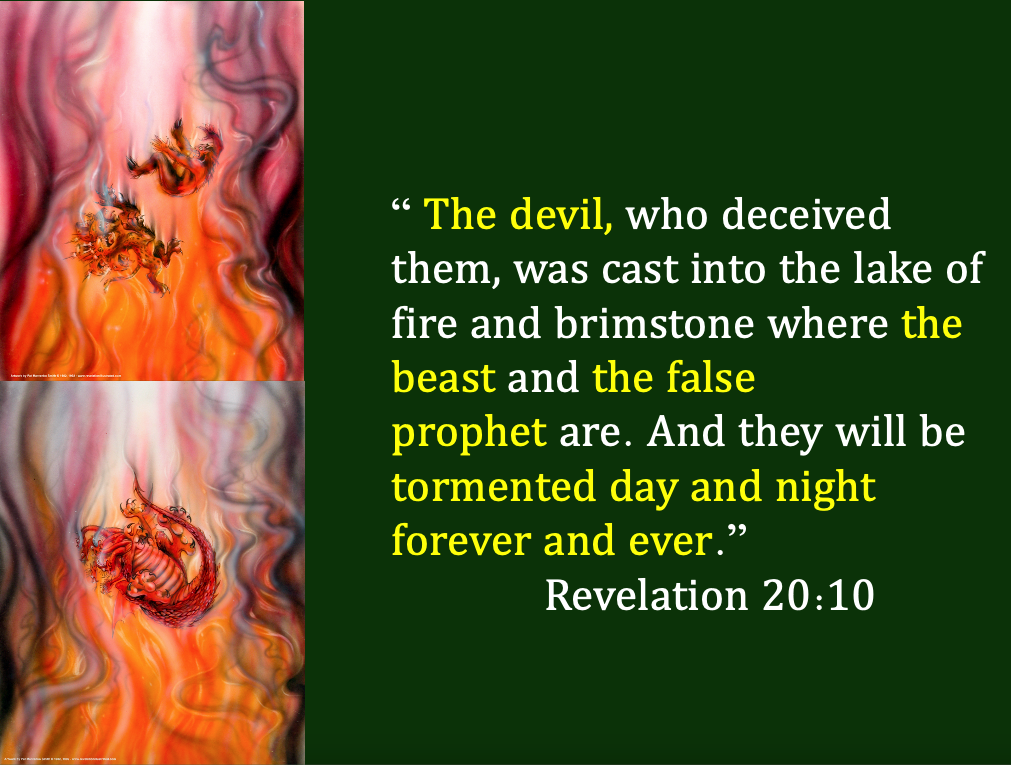
In our study of the book of Revelation, we learned that the members of the unholy trinity (Satan, the beast, and false prophet) all received their final judgment and consignment to the lake of fire forever (19:20; 20:10). Now we will see the Judge of all the earth, the Lord Jesus Christ, determine the degree of eternal punishment for every nonbeliever who has ever lived before he or she is cast into the lake of fire (20:11-15). The “rest of the dead” will “live again” (receive bodily resurrection) to receive their final judgment (20:5). 4 This is thought to be “the most serious, sobering and tragic passage in the entire Bible.” 5
The apostle John writes, “Then I saw a great white throne and Him who sat on it, from whose face the earth and the heaven fled away. And there was found no place for them.” (Revelation 20:11). The words translated “Then I saw” (kai eidon) introduces additional information John saw in this vision (cf. 19:11, 17, 19: 20:1, 4, 12; 21:1-2). The continuation of chronological progression seems obvious from the continued use of kai often translated “And,” to introduce new information. All but one verse in this chapter begins with kai (20:1, 2, 3, 4, 5, 7, 8, 9, 10, 11, 12, 13, 14, 15). 6
Initially the apostle John sees “a great white throne and Him who sat on it” (20:11a). This throne is “great” because of the One Who sat on it – the King of kings and Lord of lords, Jesus Christ (19:16; cf. I Timothy 6:14-16) – to Whom God the Father “has committed all judgment” (John 5:22). This throne is “white” because every verdict that proceeds from it is holy, just, pure, and righteous (cf. Psalm 97:2). 7 No one will be able dispute or reverse the final verdict and sentencing issued from this throne.
Erwin W. Lutzer writes, “We picture the scene: host beyond host, rank behind rank. The millions among the nations of the world, all crowded together in the presence of the One who sits upon the throne, the One who looks intently at each individual. We are accustomed to human judges; we know their partial and impartial verdicts. In the presence of the Almighty, all previous judgments are rendered useless. Many men and women acquitted on earth before a human judge will now be found guilty before God. Men who have been accustomed to perks, special privileges, and legal representation now stand as naked in the presence of God. To their horror they are judged by a standard that is light-years beyond them: The standard is God Himself… For the first time in their lives they stand in the presence of unclouded righteousness. They will be asked questions for which they know the answer. Their lives are present before them; unfortunately, they will be doomed to a painful, eternal existence.” 8
The location of this judgment is neither in heaven nor on earth, but in space as suggested by the statement “from whose face the earth and the heaven fled away” (20:11b). 9 The “earth” and “heaven” flee in terror from the Judge’s “face.” This portrays how serious and fearful it will be to stand before the Lord Jesus Christ at this final judgment. All of creation seeks to run away and hide, but “there was found no place for them” to escape (20:11c). 10 No unsaved person will be able to avoid this final judgment.
“Most adults have seen a courthouse, and some have probably been in a courtroom as a juror, witness, or part of a lawsuit. The scene is very imposing. Courtrooms often have high, vaulted ceilings with beautiful paintings and massive chandeliers. In the gallery the people sit on dark wooden benches with high, straight backs. The atmosphere is always serious and silent, except for a few muted whispers. Suddenly the door from the judge’s chambers opens and the bailiff enters, commanding all present to rise as the black-robed judge enters the courtroom. When the judge takes a seat behind the bar, court is in session. The parties are called, and the case begins.” 11
This scene will someday occur before the bar of the King of kings and Lord of lords somewhere between earth and heaven – only it will be multiplied times infinity. 12 Jesus Christ Himself will conduct the trial, and no one is more qualified than Him. He made provision for the salvation of every human being (cf. John 19:30; I Timothy 2:3-5). But those who rejected Him and His offer of salvation, must now be judged by Him. 13
“And I saw the dead, small and great, standing before the throne, and books were opened. And another book was opened, which is the Book of Life. And the dead were judged according to their works, by the things which were written in the books.” (Revelation 20:12). John “saw” the unbelieving “dead” from all ages of history “standing before the throne” in their resurrected bodies which are indestructible. The defendants at this final judgment of unsaved humankind will consist of the “small” or insignificant. No nonbeliever will be too unimportant to go unnoticed at this judgment. Unsaved people whose lives were barely a blip in history will be there. Nor will any unbeliever be too “great” or significant to escape judgment here. The unbelieving Alexander the Great’s, Julius Caesar’s, Stalin’s, and Hitler’s will be there. Unbelieving self-righteous religious leaders will be there. Atheists and terrible sinners will be there. Unbelieving procrastinators will be there. Unconverted church members will be there. No unsaved person will escape his or her day in God’s courtroom. 14
This multitude of defendants will be diverse in its religions. “We see Buddhists, Muslims, Hindus, Protestants, and Catholics. We see those who believed in one God and those who believed in many gods. We see those who refused to believe in any God at all. We see those who believed in meditation as a means of salvation and those who believed that doing good deeds was the path to eternal life. We see the moral and immoral, the priest as well as the minister, the nun as well as the missionary.” 15
Swindoll describes the unsaved at this final judgment as…
- “Those who existed amidst creation but replaced the Creator with idols and false gods.
- Those who turned their backs on the free grace of God in favor of a works-based religion.
- Those who repeatedly heard the gospel of Christ but rejected Him until it was too late.
- Those who concluded, based on logic, reason, and experience, that God doesn’t exist.
- Those who lived out their depravity through selfishness, wickedness, and violence.” 16
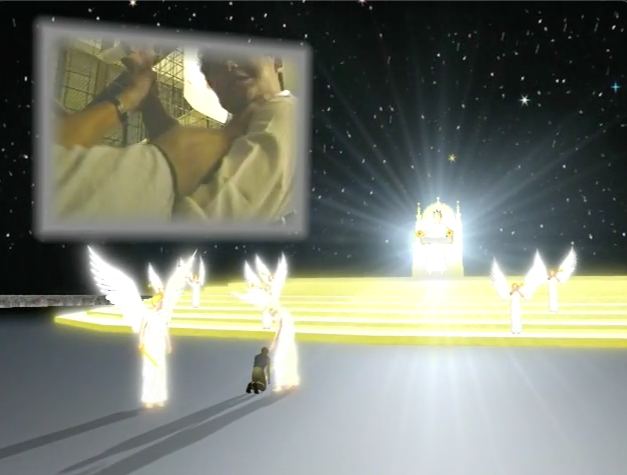
This final judgment will involve the consultation of two heavenly records: the “books” and “the book of life” (20:12b). The first heavenly record (the “books”)will determine the degree of punishment for the nonbeliever in the lake of fire. These “books” contain the record of every unsaved human being’s deeds so they can be judged “according to their works, by the things which were written in the books” (20:12c). 17 Since this judgment will be “according to their works,” there will be differing degrees of punishment among nonbelievers (cf. Matthew 11:20-24; 23:14; Mark 12:40; Luke 20:47), just as there will be varying degrees of rewards for believers at the Judgment Seat of Christ (I Corinthians 3:8-15; 2 Corinthians 5:10; Revelation 2:25-27; 22:12).
Millions if not billions of people have died thinking they are good enough to enter God’s heaven. Hence, Jesus Christ will examine all they have done throughout the course of their lives on earth and render His verdict the same for all nonbelievers: “by the deeds of the law no flesh will be justified in His sight” (Romans 3:20). 18
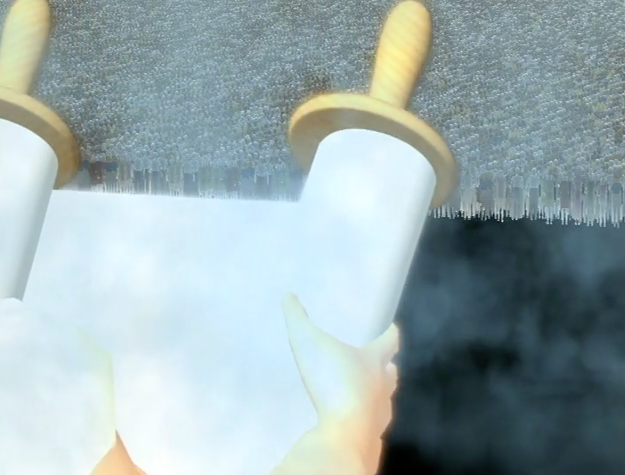
It is very important that we understand that the sinful deeds of the nonbeliever are not the basis on which the nonbeliever is consigned to the lake of fire. The basis of eternal condemnation is found in the second heavenly record: “another book was opened, which is the Book of Life” (20:12b),and it contains the names of all those who have been born spiritually into God’s family since the beginning of creation through faith in God’s promises(cf. Daniel 12:1; Luke 10:20; Philippians 4:3; Hebrews 12:23; Revelation 3:5; 13:8; 17:8; 21:7). 19
Eternal condemnation in the lake of fire is not based on a person’s behavior, but on whether his or her name is written in “the book of life” (20:15). Those who believe in Jesus Christ alone for His gift of eternal life will be found to have their names written in the book of life (cf. John 3:16, 36; 5:24; et al.). They have been credited with God’s imputed righteousness because of their faith in Jesus, not because of their good works (Romans 4:5). No one will receive eternal life based on what is written in a book of deeds because everyone has sinned and fallen short of God’s perfect standard of righteousness (Romans 3:23; 6:23). 20 Hence, all nonbelievers, will not have their names written in the book of life because they were never saved by grace through faith alone in Christ alone for His gift of salvation (Ephesians 2:8-9).
To have your name written in the book of life you must reject the idea that your own righteousness will gain acceptance before God. The apostle Paul wrote, “knowing that a man is not justified by the works of the law but by faith in Jesus Christ, even we have believed in Christ Jesus, that we might be justified by faith in Christ and not by the works of the law; for by the works of the law no flesh shall be justified.” (Galatians 2:16). Believers in Jesus for His gift of salvation will have their names written in “the book of life” and therefore, will never receive eternal punishment based on their deeds. Hence, they will not be summoned to appear before the great white throne. 21
But all unsaved people from all ages of history will be summoned to appear at the great white throne. No high-priced lawyers will get the case postponed or dismissed on a legal technicality. No one will jump bail. Everyone who is summoned must appear. 22
“The sea gave up the dead who were in it, and Death and Hades delivered up the dead who were in them. And they were judged, each one according to his works.” (Revelation 20:13). God will physically resurrect the bodies of all nonbelievers, and unite them with their spirits, even those bodies decomposed in “the sea.” “In the ancient world the sea was thought to be the most inaccessible place. No human could venture to the depths of the ocean. People believed that no one buried in the ocean could ever be disturbed. God makes it clear that even the most mysterious, difficult, out-of-the-way, forbidden places are fully accessible to God. The Day of Judgment is sure (Hebrews 9:27).” 23
The statement “Death and Hades delivered up the dead who were in them” refers to the physical bodies of the unsaved (“Death”) being joined with their souls and spirits which have been in “Hades.” 24 “Hades” is the temporary holding place of the souls and spirits of all nonbelievers until the great white throne judgment (Luke 16:23-24).
At the time of physical death during this church age, the soul and spirit are separated from the physical body, with the immaterial parts (spirit and soul) of believers going immediately into the presence of Christ in the third heaven (2 Corinthians 5:8; Philippians 1:23; 2 Corinthians 12:1-4) and the immaterial parts (spirit and soul) of nonbelievers going to torments in Hades (Luke 16:23-24). At the Rapture of the church (I Thessalonians 4:15-17), believers’ souls and spirits will be united with glorified bodies appropriate to their eternal existence in heaven. Here in Revelation 20:12-13, nonbelievers’ souls and spirits are united with bodies suited for their eternal location. 25
John informs us a second time that all nonbelievers at the great white throne will be “judged, each one according to his works.” (Revelation 20:13b). The punishment of each nonbeliever will be proportional to their sinful works. The more wickedly they behaved, the greater the degree of their punishment in the lake of fire. The charges against each nonbeliever will be read to them before their sentencing. One interpreter describes the seriousness of this judgment:
“The accused, all the unsaved who have ever lived, will be resurrected to experience a trial like no other that has ever been. There will be no debate over their guilt or innocence. There will be a prosecutor, but no defender; an accuser but no advocate. There will be an indictment, but no defense mounted by the accused; the convicting evidence will be presented with no rebuttal or cross-examination. There will be an utterly unsympathetic Judge and no jury, and there will be no appeal of the sentence He pronounces. The guilty will be punished eternally with no possibility of parole in a prison from which there is no escape.” 26
Next John tells us, “Then Death and Hades were cast into the lake of fire. This is the second death, the lake of fire.” (Revelation 20:14). From this point on there will be no more since God will cast “death and Hades… into the lake of fire.” Being “cast into the lake of fire” is described as “the second death.” “When a person is arrested for a crime, he is sent to a temporary place of punishment awaiting trial. But once that person has been tried and found guilty, he is sent to a long-term place of punishment. Hades can be conceived of as a prison to which men are temporarily assigned because they have been bound over for trial, but the lake of fire is God’s permanent prison for the eternally lost (cf. Matthew 13:40-42; 25:41; Mark 9:43-44; Jude 1:7; Revelation 21:8).” 27
Just as believers in Jesus have two births – physical and spiritual (John 3:5-6), so nonbelievers have two deaths. The first death involves separation of the soul and spirit from the physical body. The second death involves separation of the soul and spirit from God forever.

Finally, John writes, “And anyone not found written in the Book of Life was cast into the lake of fire.” (Revelation 20:15). The “lake of fire” will be the final and eternal location of every human whose name is “not found written in the Book of Life.” Every person who dies without believing in Christ alone for everlasting life will not be “found written in the Book of Life.” The “lake of fire” is a horrible place of eternal, conscious torment (14:10-11; 20:10) received in proportion to one’s sinful “works” done in the body (cf. 20:12-13). Those who receive this eternal punishment have not necessarily committed worse sins than believers who dwell with God in His heaven. Nonbelievers are simply reaping the fruit of their sins instead of enjoying the benefits of having Christ’s perfect record credited to their accounts (cf. Roman 3:22, 24-26, 28; 4:5-8). 28
Although many Christians and non-Christians have tried to deny or avoid the biblical truth concerning eternal punishment, as far as God’s revelation is concerned there are only two destinies for human beings; one is to be with the Lord forever in His heaven (John 3:36a; Revelation 21:1-22:21) and the other is to be separated from God forever in the lake of fire (John 3:36b; Revelation 21:14-15). This solemn fact is intended to motivate Christians to take the gospel to the ends of the earth no matter what the cost and doing everything possible to inform and challenge the unsaved to believe in Christ for His free gift of eternal life before it is too late. 29
The sentencing of nonbelievers to the lake of fire forever may seem very harsh to us. Some of us may think it is unfair and inconsistent with God’s love and mercy. But we must remember that God is infinitely holy (Revelation 3:7; 4:8; 6:10; 15:4; cf. Isaiah 6:3) and just (Revelation 15:3; cf. Psalm 89:14; Isaiah 30:18). The penalty for sin must be paid (Romans 6:23). Jesus Christ Himself loved us so much He personally bore the wrath and punishment of God for human sin (Romans 5:8; 2 Corinthians 5:21; I Peter 3:18), fully satisfying God’s demand to punish sin (I John 2:1-2).
Every person must decide to either accept Christ’s full payment for his or her sins (John 19:30) or pay the infinite price himself or herself in the lake of fire (Revelation 20:15). The price must be paid in full. Will we pay it ourselves in the lake of fire or will we believe in Christ and His full payment in our place? The choice is ours. Either way, God is perfectly fair and just. 30
If you do not know for sure you will live with Jesus in eternity, you can make sure right now so you can avoid eternal torment in the lake of fire. Simply believe Jesus’ promise in John 3:16: “Whoever believes in Him should not perish but have everlasting life.” Jesus is not asking you if you keep His commandments or go to church every week. Because He never said whoever keeps His commandments or goes to church every week should not perish but have everlasting life. Christ is not asking you if you pray or meditate every day because He never said whoever prays or meditates every day should not perish but have everlasting life. Nor is Jesus asking you if you persevere in good works or have been baptized with water because He never said whoever perseveres in good works or is baptized with water should not perish but have everlasting life.
No. Jesus is asking you, “Do you believe in Me?” because He said, “Whoever believes in Him should not perish but have everlasting life.” The word “believe” (pisteuō) in the New Testament means to be persuaded that something is true and therefore worthy of one’s trust. 31 When Jesus says, “Whoever believes in Him should not perish but have everlasting life,” are you convinced He is telling the truth and therefore is worthy of your trust? If you are, then trust Him to give you His gift of everlasting life.
The moment you believe or trust in Jesus for eternal life – you have eternal life. It is so simple a child can do it, yet, as adults, we have made it difficult. Jesus says the person “believes” and “have.” We have what we take, correct? Jesus asks us to take the eternal life that He is freely offering to us.
For example, I sometimes illustrate faith by holding up a five-dollar bill at an evangelistic gathering. I explain to the audience that the first person who comes up to me and takes this bill from my hand can keep this bill. When someone does this, I then ask them why he or she came up. If they understand the simplicity of faith, they usually say because they believed my promise to give them the money.
Jesus Christ is saying, “I love you. I died for you. Do you believe? Will you trust Me to give you the never-ending life I bought for you with My own blood that was shed for you on the cross?” This is an invitation to believe in Jesus Christ and Him alone – not ourselves or Him plus our works. Nor is He asking us to believe in the Jesus of Islam or Hinduism or Mormonism or Jehovah Witnesses or some other religion. Christ is asking us to believe in the Jesus of the Bible.
Many people don’t believe in the lake of fire or hell, but they better be sure because no one can afford to be wrong on this issue. When we believe in Jesus, Christ promises we shall not “perish” in the lake of fire (John 3:16). This is the best news ever!
If you just believed in Christ for His gift of everlasting life, you can tell God this through prayer. You can simply say to the Lord, “Dear Jesus, I come to you now as a sinner. I cannot save myself. I believe You died for me on the cross and rose from the dead. I am now believing or trusting in You alone Jesus (not my good life, my prayers, or my religion), to give me everlasting life and rescue me forever from the lake of fire. Thank You for the everlasting life I now have and for the future home I will have in Your heaven. In Your mighty name I pray, Lord Jesus. Amen.”
When you believed in Jesus, He gave you everlasting life which can never be lost (John 10:28-29). He guarantees you will never come into judgment because He has rescued you from the lake of fire forever (John 3:16b; 5:24). God now wants to use you to tell your family and friends the good news of Jesus’ free offer of eternal life so they can be forever saved from the lake of fire the moment they believe in Jesus.
Prayer: Heavenly Father, all people have sinned against you and deserve to suffer eternal punishment and torment in the lake of fire. Yet because of Your amazing grace, we can be forever saved from the lake of fire simply by believing in Your Son who was lifted up on a cross to die in our place for our sins and then rose from the dead so whoever believes in Him should not perish in the lake of fire but have everlasting life with You in Your heaven. Because of Your great love and grace, we will not have to stand before the great white throne if we believe in Jesus. Please use us, we pray, to share this wonderful news with those who are perishing without Christ. May we be willing to do whatever it takes to share the gospel of grace with every lost person in the world today. In the mighty name of Jesus Christ, we pray. Amen.
ENDNOTES:
1. Charles Swindoll, Insights on Revelation (Swindoll’s Living Insights New Testament Commentary Book 15, Tyndale House Publishers, Inc., 2014 Kindle Edition), pg. 366 cites Dante Alighieri, Divine Comedy, “Inferno,” Canto 3, retranslated by Michael J. Svigel from the Italian version of Dante Alighieri, The Divine Comedy: Inferno, vol. 1, ed. Charles Singleton, Bollingen Series 18 (Princeton, NJ: Princeton University Press, 1970), pg. 24.
2. Ibid., pg. 367.
3. Ibid.
4. Bob Vacendak; Robert Wilkin; J. Bond; Gary Derickson; Brad Doskocil; Zane Hodges; Dwight Hunt; Shawn Leach; The Grace New Testament Commentary: Revised Edition (Grace Evangelical Society, Kindle Edition, 2019), pg. 1581.
5. Swindoll, pg. 367 cites John MacArthur, Revelation 12-22, MacArthur New Testament Commentary (Chicago: Moody Press, 2000), pg. 245.
6. Tom Constable, Notes on Revelation, 2017 Edition, pg. 229.
7. Vacendak, pg. 1581.
8. Mark Hitchcock, The End: A Complete Overview of Bible Prophecy and the End of Days (Carol Stream, IL: Tyndale House Publishers, Inc., 2012 Kindle Edition), pg. 436 cites Erwin W. Lutzer, Your Eternal Reward: Triumph and Tears at the Judgment Seat of Christ (Chicago: Moody, 1998), pp. 164-165.
9. John F. Walvoord, The Bible Knowledge Commentary Epistles and Prophecy, Editors John F. Walvoord and Roy B. Zuck (David C. Cook, 2018 Kindle Edition), location 6448.
10. Vacendak, pg. 1581.
11. Hitchcock, pg. 438.
12. Ibid.
13. Ibid., pg. 439 cites David Jeremiah, Escape the Coming Night (Dallas: Word Publishing, 1997), pg. 236.
14. Hitchcock, pg. 439.
15. Ibid., cites Lutzer, Your Eternal Reward, pg. 166.
16. Swindoll, pg. 368.
17. Tony Evans, CSB Bible by Holman, The Tony Evans Study Commentary (B & H Publishing Group, Kindle Edition 2019), pg. 2419.
18. Vacendak, pg. 1581.
19. Ibid.
20. Evans, pg. 2419.
21. Swindoll, pp. 368-369.
22. Hitchcock, pg. 440.
23. Ibid.
24. Walvoord, location 6482.
25. Evans, pg. 2420.
26. Swindoll, pp. 371 cites John MacArthur, pp. 245-246.
27. Vacendak, pg. 1582.
28. Evans, pg. 2420.
29. Walvoord, location 6492.
30. Hitchcock, pg. 441.
31. Walter Bauer, A Greek-English Lexicon of the New Testament and Other Early Christian Literature: Third Edition (BDAG) revised and edited by Frederick William Danker (Chicago: University of Chicago Press, 2000 Kindle Edition), pg. 816.

